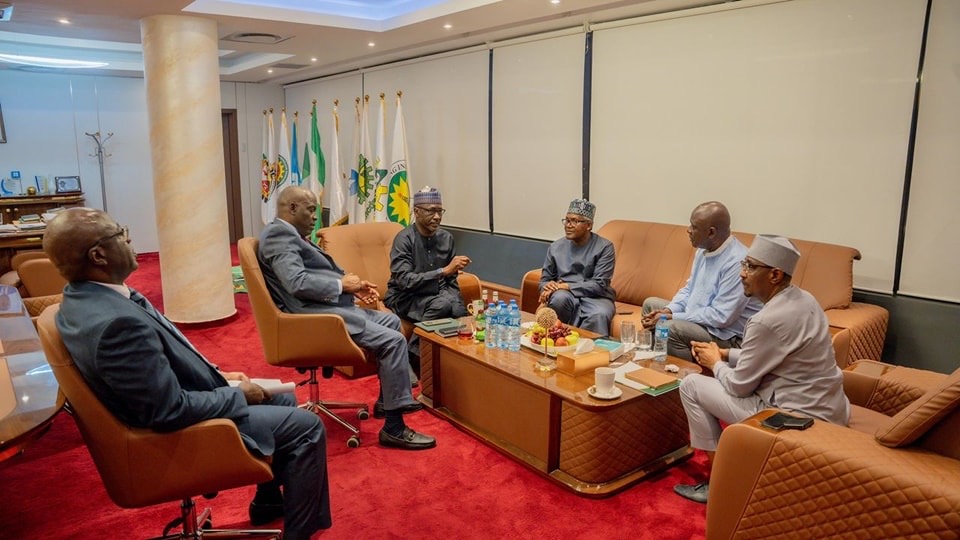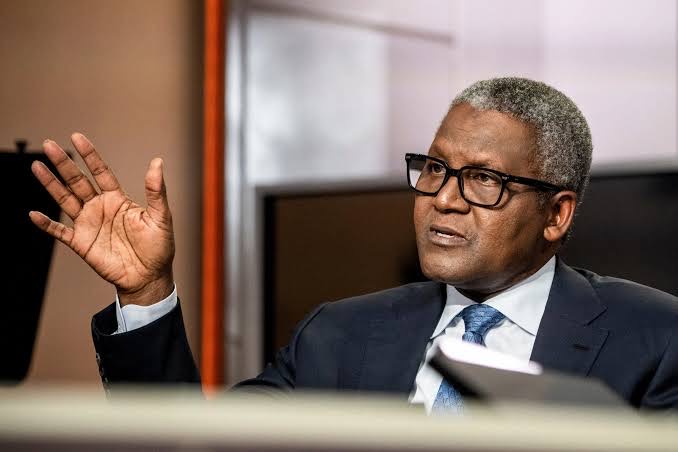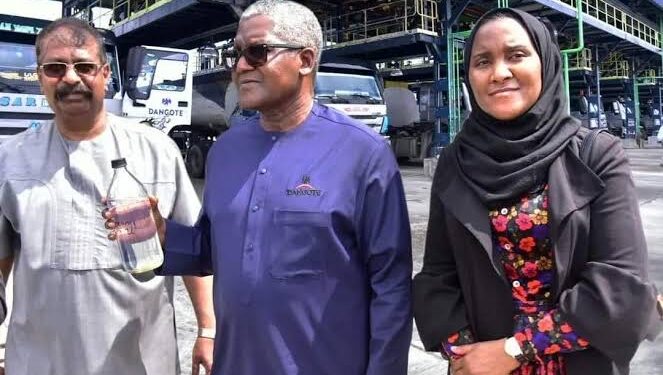Aliko Dangote, the founder of Dangote Petroleum Refinery, has stated that the time has come for the Nigerian federal government to discontinue the petrol subsidy. Dangote made these remarks during an interview with Bloomberg TV, where he elaborated on the unsustainable nature of fuel subsidies and the economic benefits of abolishing them.
“I think it is the right time to (take away subsidy) because all countries have gotten rid of subsidy,” Dangote asserted, emphasizing that Nigeria is out of step with global trends. He explained that subsidies, while sensitive, often lead to market distortions where prices are artificially inflated, causing the government to bear unnecessary financial burdens. According to Dangote, continuing the subsidy forces the government to pay for fuel consumption beyond what is reasonable or sustainable.
Dangote’s Refinery to Track Local Petrol Sales;

In addition to advocating for the removal of the petrol subsidy, Dangote highlighted the steps his refinery is taking to enhance transparency and accountability in the local fuel market. He revealed that his refinery will track the petrol sold locally to ensure that the actual consumption rate is properly accounted for. He pointed out that there is significant uncertainty about Nigeria’s daily fuel consumption, with estimates ranging from 60 million litres per day to significantly lower figures.
“But this refinery will bring quite a lot of issues out there. It would show the real consumption of Nigeria because nobody can tell. Some people say it is 60 million litres per day, some say it is less,” Dangote stated. He stressed that by producing fuel locally, the actual consumption could be accurately monitored and verified, eliminating the ambiguity that currently exists.
To achieve this, Dangote plans to install trackers on trucks and ships that load petrol from the refinery. These trackers will ensure that the fuel remains within Nigeria and is used for domestic consumption. “Most of the trucks or ships that will load from us, we will put a tracker on them to be sure they are going to take the oil within Nigeria and that can help the government to save a lot of money,” he explained.
Dangote also compared the current situation in Nigeria to Saudi Arabia, highlighting the discrepancies in fuel pricing. He noted that while Saudi citizens once viewed cheap oil as a divine right, petrol prices in Nigeria are now about 40 percent cheaper than in Saudi Arabia, a situation that he finds illogical given the economic context. “For example, Saudis, the citizens believe that oil is our god-given gift and should not charge us for it. Government was selling it at a very low price. But today, as we speak, gasoline is about 40 percent cheaper in Nigeria than in Saudi Arabia, which I think does not make sense,” he remarked.

Petrol Subsidy Not Sustainable, Government Can’t Afford It;
Dangote reiterated his stance on the unsustainability of petrol subsidies, explaining that Nigeria’s gasoline prices are significantly lower than those in neighboring countries. This, combined with Nigeria’s porous borders, creates opportunities for fuel smuggling, further exacerbating the strain on the government’s finances. “Our price of gasoline is about 60 percent the price of our neighbouring countries and we have porous borders, so it is not sustainable. Government can not afford the amount of subsidies we are paying,” Dangote emphasized.
He also addressed the government’s role in determining the future of the subsidy, making it clear that while Dangote Refinery is a private enterprise, the decision to retain or remove the subsidy rests with the government. “The removal of subsidy is totally dependent on the government, not on us,” he said. “We built something worth $20 billion, and definitely we have to make money. We are a private company and it is true we have to make a profit.”
According to Dangote, whether or not the government decides to remove the subsidy, it will eventually have to make concessions. “We can not change the price but I think the government would have to give up something for something,” he added, suggesting that the subsidy removal is inevitable in the long run.
The Federal Government’s Ongoing Struggle with Subsidy;
On May 29, 2023, President Bola Tinubu declared an end to the petrol subsidy regime, a decision that was widely reported and seen as a significant policy shift. However, despite this official stance, there have been multiple conflicting reports regarding the status of the subsidy.
Nearly three months after the announcement, some journalists reported that President Tinubu was considering a “temporary subsidy” due to rising crude oil prices and fluctuations in foreign exchange rates. However, Ajuri Ngelale, the former presidential spokesperson, dismissed these claims, stating there was no plan to reintroduce the subsidy.
On January 3, the Nigerian National Petroleum Company (NNPC) Limited also denied any reintroduction of the petrol subsidy, insisting that it had been entirely removed. Yet, confusion persisted when, on April 15, Nasir el-Rufai, the former governor of Kaduna State, asserted that the federal government was actually spending more on petrol subsidies than before.
Adding to the controversy, it was reported on August 19 that President Tinubu had approved an NNPC request to use the 2023 final dividends owed to the federation for subsidizing petrol. Initially, the NNPC denied this, only to admit hours later that the federal government owes it N7.8 trillion for fuel subsidies already provided.
Despite the ongoing uncertainty, President Tinubu has maintained that Nigeria’s daily petrol consumption has drastically reduced since the removal of the subsidy. “Nigeria’s daily consumption of petrol reduced to about 30 million litres after subsidy removal,” Tinubu said almost a month later, a significant drop from previous estimates of 60 million litres per day.
In conclusion, Dangote’s call for the removal of the petrol subsidy is rooted in the economic realities facing Nigeria, as the country grapples with unsustainable financial obligations tied to subsidizing fuel. While the government continues to weigh its options, Dangote’s refinery aims to introduce much-needed transparency in the fuel sector, ensuring that Nigeria’s true consumption is accounted for, and ultimately contributing to the country’s economic stability.
































